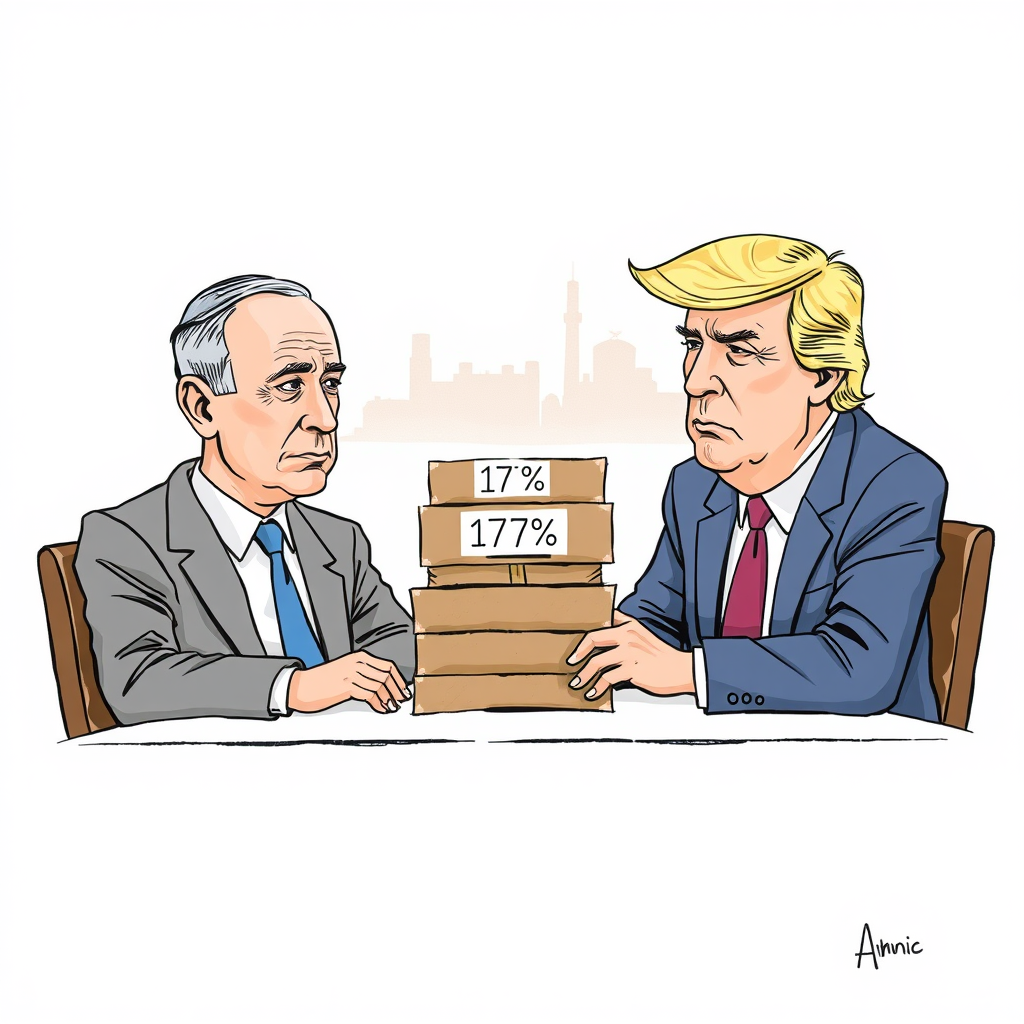Netanyahu to Confront Trump Over New Tariffs

Israeli Prime Minister Benjamin Netanyahu is scheduled to meet with President Donald Trump at the White House on Monday, according to a senior U.S. official. The meeting comes at a particularly fraught moment in U.S.-Israeli relations, dominated by escalating economic tensions and stalled negotiations over critical regional issues.
The most immediate concern is the imposition of a 17 percent tariff on Israeli imports announced by President Trump, a move that has blindsided many within both administrations. Israel attempted a preemptive measure – eliminating duties on the small percentage of American goods still subject to Israeli tariffs – but this failed to deter the U.S. action. Trump justified the tariffs by citing a significant trade deficit with Israel, despite the substantial military aid the U.S. provides. Netanyahu will be the first foreign leader to travel to Washington specifically to address these new tariffs, signaling the seriousness with which Israel views the situation.
Beyond the economic dispute, the leaders are expected to discuss the stalled efforts to secure a ceasefire in Gaza and the return of hostages held by Hamas. Israel resumed military operations in Gaza last month, ending a brief truce, and a new agreement remains elusive. The U.S. and Israel also share concerns about Iran’s nuclear program, with Trump pushing for a new deal despite limited progress. Speculation persists regarding the possibility of military action against Iranian facilities, potentially with U.S. support, if a diplomatic solution fails.
The timing of Netanyahu’s visit, initially planned for later this month, was reportedly accelerated following the tariff announcement. The two leaders also discussed Hungary’s withdrawal from the International Criminal Court during a phone conversation Thursday, at which point the Washington meeting was apparently proposed.
This visit underscores a complex dynamic. While the U.S. and Israel maintain a strong strategic alliance, Trump’s willingness to impose tariffs on even close allies represents a departure from traditional policy and introduces a new level of economic pressure into the relationship. It remains to be seen whether Netanyahu can successfully negotiate a resolution to the tariff dispute and revitalize stalled peace efforts, but the stakes are undeniably high for both nations. The situation highlights a shift towards a more transactional approach to international relations under the Trump administration, where even longstanding alliances are subject to economic leverage.